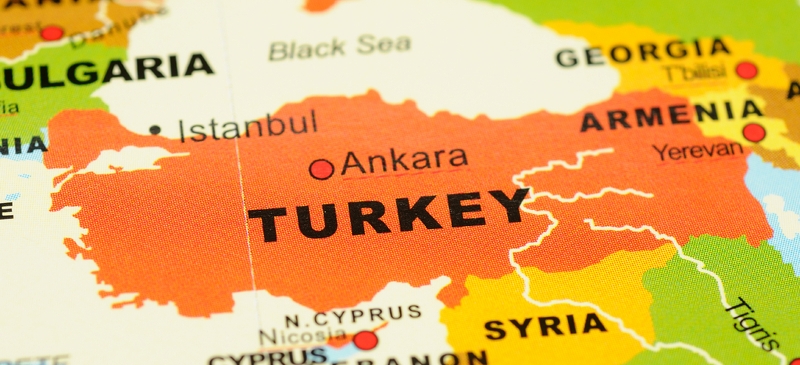
More than just a debate about the headscarf
Turkey is about to give itself a new constitution. That is good because the current one was written by the army in 1982, after the last military coup. But the constitutional debate so far has been divisive. Attention has focused on the government's suggestion to scrap the ban on girls wearing headscarves in universities. Depending on where you stand, this represents a move either towards greater religious freedom and equal opportunities, or towards the Islamisation of the Turkish state - and away from the secular order that Mustafa Kemal Atatürk established in 1923.
The narrow focus on the headscarf is unfortunate. The new con-stitution involves a much broader range of issues, including the role of women in politics and society, minority rights and the unity of the state, and the intricate system of checks and balances that makes Turkey's traditionally fragile demo-cracy work. This is about who runs modern Turkey and how.
The new constitution is one step in this shift of power that is seeing the secular establishment yield ground to a new, more religious middle class. Others have included: the election victory of Recep Tayyip Erdogan's moderately Islamist AK party in 2002: the constitutional amendments needed for starting European Union accession talks in 2005, which removed the army from the heart of politics; the generals' threat of intervention in April 2007 over the presidential bid of the AKP's Abdullah Gul; and this summer's parliamentary election, which returned Mr Erdogan to power with an even stronger mandate.
Few people doubt that Turkey needs a new constitution that protects the individual against the state, rather than the other way round. Mr Erdogan's government has vowed not to touch well-established principles such as the separation of state and religion. But opponents accuse it of staging a creeping Islamist coup and encouraging Kurdish separatism. They are on stronger ground when they say they suspect that the new constitution would leave the AKP overly -powerful.
Under the old order, the army and the president were the main checks against any government undermining Atatürk's rules. The fact that past governments were usually squabbling coalitions added another layer of checks and balances. Now the army has been confined to barracks, the AKP controls the parliament and the president is a close ally of Mr Erdogan, the prime minister. The new constitution would firmly enshrine the politicians' control over the military and turn the presidency into a more ceremonial role. Combine that with AKP proposals to let girls study in headscarves and allow teaching in languages other than Turkish, and it becomes clear why some think Atatürk's order is under threat.
Nevertheless, the deep-seated suspicion with which many in the established, secular elite follow the AKP's every move is baffling to outside observers. After all, this administration has done more to modernise democracy, improve women's rights, open up the economy and move towards Europe than most previous governments.
Unfortunately, the way the AKP has set about writing the new constitution has reinforced rather than dispelled its opponents' suspicions. Rather than launching a country-wide grassroots debate or setting up an inclusive constitutional council, it has asked a hand-picked group of professors to write a first draft behind closed doors. The leaking of this draft in September caused uproar, not so much because of its content but because of the risk the "army's constitution" of 1982 could now be replaced with the "AKP's constitution" of 2008. The next non-AKP government would be sorely tempted to go for yet another constitution. Pro-tracted constitutional debates would soak up energydesperately needed for pressing tasks such as improving the education system, modernising the judiciary, pushing the European Union talks forward or helping stabilise Turkey's volatile neighbourhood.
It is not too late for the government to rectify this mistake. It needs to follow up on its belated promises to involve civil society and opposition parties in the constitutional debate. It needs to show that it is serious about individual rights by abolishing article 301 of the penal code, under which scores of writers and journalists have been charged for insulting "Turkishness". Acknowledging legitimate concerns about Turkey's checks and balances, it needs carefully to broaden the debate from the divisive issue of headscarves to how power should be exercised in a modern, secular and predominantly Muslim country.
